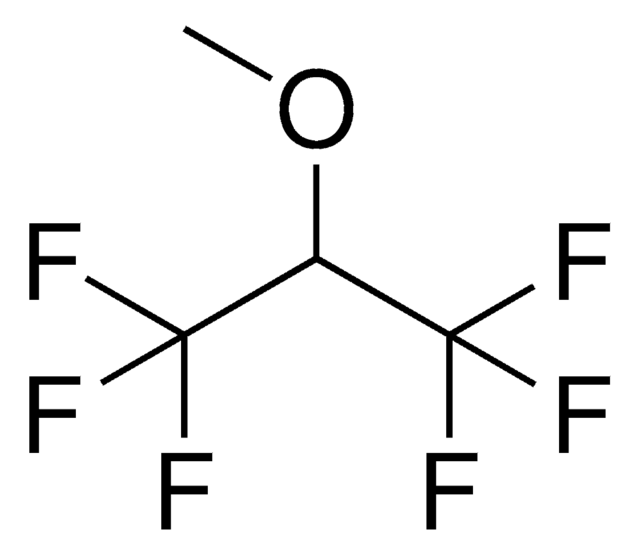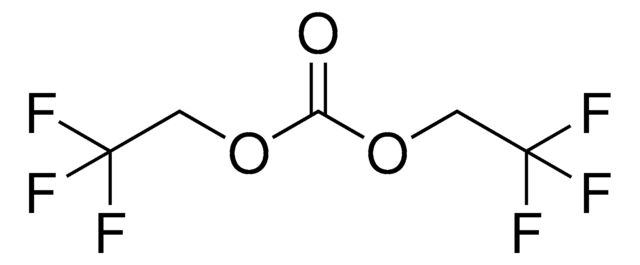934046
Ethyl 1,1,2,2-tetrafluoroethyl ether
≥99%, anhydrous, battery grade
Sinónimos:
1,1,2,2-Tetrafluoroethyl ethyl ether, 1-Ethoxy-1,1,2,2-tetrafluoroethane, ETFE, HFE 374
About This Item
Productos recomendados
grade
battery grade
Quality Level
assay
≥99%
form
liquid
greener alternative product characteristics
Design for Energy Efficiency
Learn more about the Principles of Green Chemistry.
sustainability
Greener Alternative Product
impurities
≤100 ppm HF
≤200 ppm H2O
bp
58 °C
mp
-86 °C (lit.)
density
1.21 g/mL
application(s)
battery manufacturing
greener alternative category
Categorías relacionadas
General description
Application
signalword
Danger
hcodes
Hazard Classifications
Flam. Liq. 2
Storage Class
3 - Flammable liquids
wgk_germany
WGK 3
flash_point_f
5.0 °F
flash_point_c
-15 °C
Certificados de análisis (COA)
Busque Certificados de análisis (COA) introduciendo el número de lote del producto. Los números de lote se encuentran en la etiqueta del producto después de las palabras «Lot» o «Batch»
¿Ya tiene este producto?
Encuentre la documentación para los productos que ha comprado recientemente en la Biblioteca de documentos.
Nuestro equipo de científicos tiene experiencia en todas las áreas de investigación: Ciencias de la vida, Ciencia de los materiales, Síntesis química, Cromatografía, Analítica y muchas otras.
Póngase en contacto con el Servicio técnico








![1,1,1-Trifluoro-2-[(2-methoxyethoxy)methoxy]ethane](/deepweb/assets/sigmaaldrich/product/structures/456/115/61ddafaa-0eb7-4c54-8b2c-62f0f71fe724/640/61ddafaa-0eb7-4c54-8b2c-62f0f71fe724.png)
